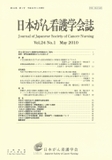Japanese
English
- 販売していません
- Abstract 文献概要
- 参考文献 Reference
- サイト内被引用 Cited by
要旨
同種造血細胞移植レシピエントは長期に亘って生活制限や療養環境の調整を要し,主体的な対処の支援として情報提供が重要であるが,療養行動に関する勧告にはエビデンスが不足し,情報提供内容に基準はない.加えて,本邦の移植実態から,単施設での情報提供経験の蓄積は困難である.本研究では,療養生活に関して看護師からレシピエントへ伝える必要がある情報を明らかにし,その重要度を階層的に示すことを目的として,Delphi法による調査を行った.レシピエント用説明資料と専門家らへの面接調査から集積した【易感染性】,【GVHD】,【晩期障害】,【一般的日常生活管理】,【緊急時連絡先】に関する80項目を用い,全国18施設の移植看護経験を持つ看護師240名を対象に,2回意見を求めた.最終的に126名(53%)から有効回答が得られ,75項目が『伝える必要がある情報』と合意された.うち,生命の危機に直結する問題への対処行動などの9項目は『特に重要な情報』,多数のレシピエントに有用な具体的な生活行動などの30項目は『次に重要な情報』,『伝えるほうがよい情報』の36項目は,理論的に推奨される行動とその前提知識,活動の調整などであった.『伝える必要があるとの合意が得られなかった情報』となった5項目では,エビデンス不足や説明の困難さ,表現の不適切さが指摘された.今回の合意結果は,レシピエントの個別性に合わせて看護師が情報提供する際の有用な参照資料となりうる.
Abstract
Recipients with allogeneic hematopoietic cell transplantation (allo-HCT) have to manage their daily living for a long time. Although patient education is very important for such recipients, no guidelines have been defined for daily living after allo-HCT. This study aimed to identify the contents of patient education that should be provided by nurses to allo-HCT recipients and to present the contents of patient education according to the level of importance.
The Delphi process was used to explore areas of agreement regarding importance among respondents. The questionnaire survey contains 80 items concerning five categories: “increased susceptibility to infection”; “GVHD”; “late complications”; “self-management of daily living”; and “contact information”. Subjects comprised 240 Japanese nurses with experience in hematopoietic cell transplantation nursing at 18 institutions that participated in this study.
Two iterations of the survey resulted in a response rate of 53% (126 respondents), and reached consensus on 75 items as requisite information. Nine items out of the requisite information were assigned to the level of “most important information”, with contents concerning coping with life-threatening problems. Thirty items among the requisite information were assigned to the level of “considerably important information”, with contents regarding practical behaviors that were commonly helpful for most recipients. Thirty-six items from among the 75 items were assigned to “information that should be provided”, including theoretically recommended behaviors and knowledge about behavior. Poor agreement was found for another five items.
In conclusion, contents of patient education that should be provided by nurses to allo-HCT recipients were clarified and presented according to the level of importance. The results provide reference data for patient education about post allo-HCT.
Copyright © 2010, Japanese Society of Cancer Nursing All rights reserved.


